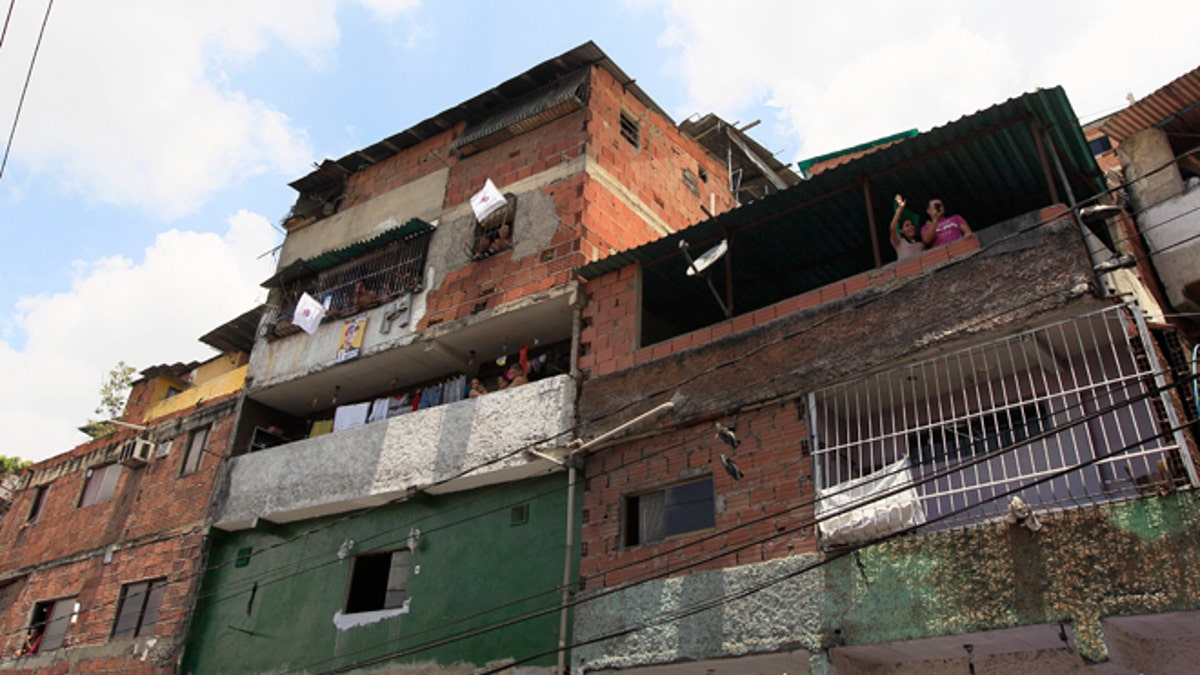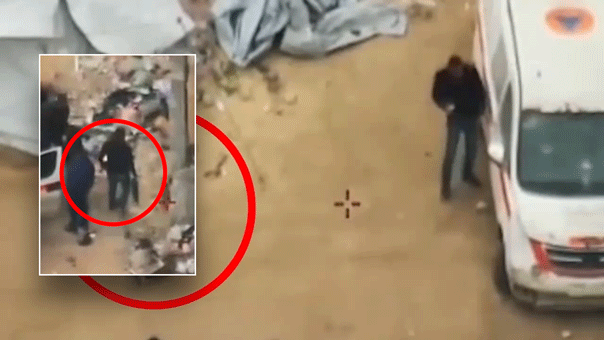
Supporters of opposition presidential candidate Henrique Capriles cheer from the inside of their houses during a campaign rally in Caracas, Venezuela, Sunday, Sept. 16, 2012. Capriles is running against President Hugo Chavez in the country's Oct. 7 election. (AP Photo/Fernando Llano) (AP2012)
Venezuela’s “increasingly fragile” balance sheet and a Hugo Chávez reelection could push the country into default in 2013, Wall Street analysts predicted.
Chávez has nationalized sectors of the economy and created a convoluted system of price and currency controls which contribute to an “unsustainable” mix, according to Morgan Stanley analyst Daniel Volberg, whose note last week warned that the country could default in 2013. If oil prices tank while inflation and Chávez’s lack of fiscal discipline continue, the country does not seem likely to pay back its $110.6 billion debt.
Venezuela has been on analysts’ radar for years seemingly vying for the dubious honor of most likely to default on its payments. If fiscal practices continue the way they are, coffers don’t seem full enough to repay the $4.3 billion that is due between August and November 2013 and the Latin American country may have to default.
Oil is Venezuela’s main source of revenue. During Chávez’s rule the country experienced the biggest oil boom in its history, earning from $600 billion to $800 billion. Analysts honed in on the country’s financial woes shortly after that surge when private industry production fell dramatically leading Venezuela to increase its import spending while Chávez’s administration spent more to expand state rule, according to El Universal.
The state-owned petroleum company PDVSA is the fifth largest oil exporter in the world and contributes billions of dollars to fund social Venezuelan projects. Officials reported that they expect to increase oil production by investing as much as $130 billion through 2019. They hope to increase to 6 million barrels a day and right now have the world’s largest oil reserves.
However, a recently leaked memo indicated that oil production is less that official estimates have indicated, according to a report by Reuters.
The country’s precarious financial state is driving the political rhetoric in advance of the October election. Chávez leaked a document that he said came from his opponent Henrique Capriles and used it to sound alarms that a “civil war” could happen if he is not re-elected. But Capriles’ campaign calls that memo a fake and his top aide has told reporters that Venezuela’s borrowing costs would fall by up to 3 percentage points and ease the burden on finances.
Despite longtime expectations that Venezuela would default, Chávez never has. But if the country can’t pay back its debt a remedy might be difficult. “Venezuela’s debt is no longer with large bank lenders as much as publicly traded bonds held by a dispersed group of creditors, which could make restructuring more challenging,” according to Volberg.









































